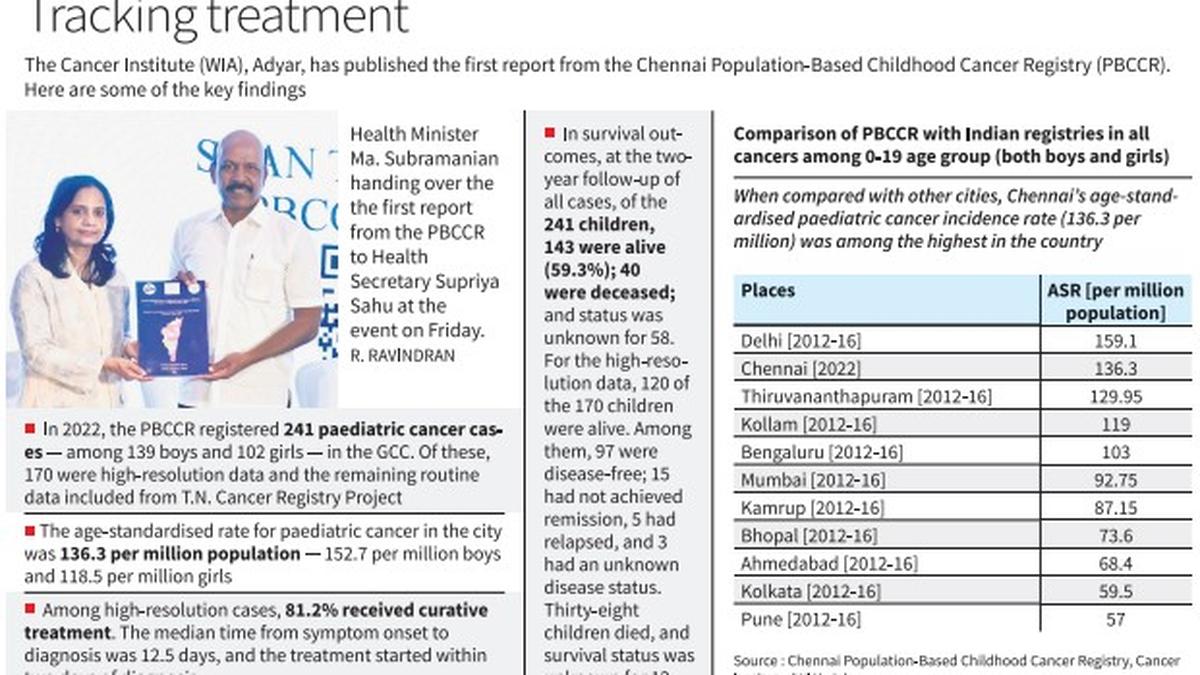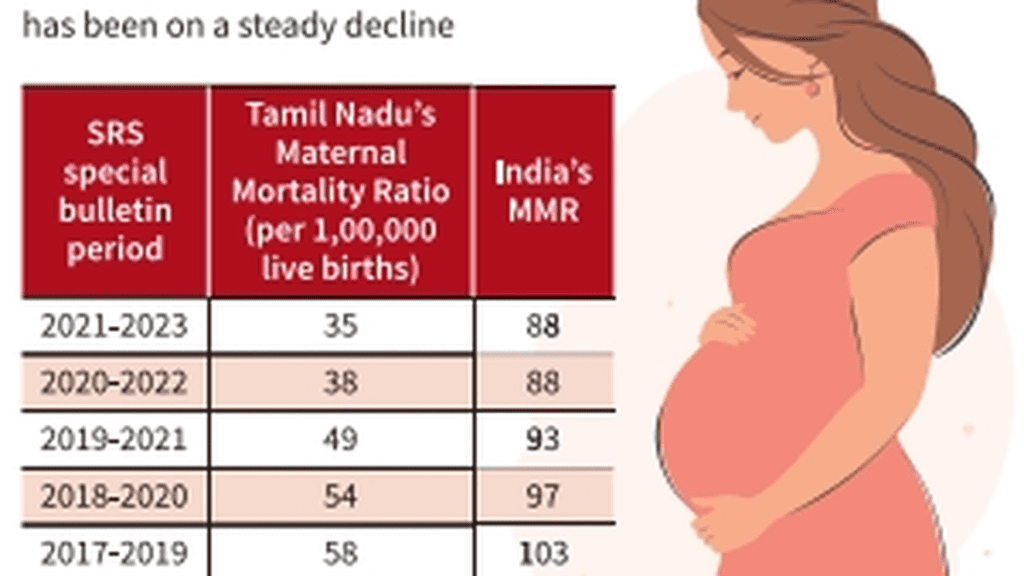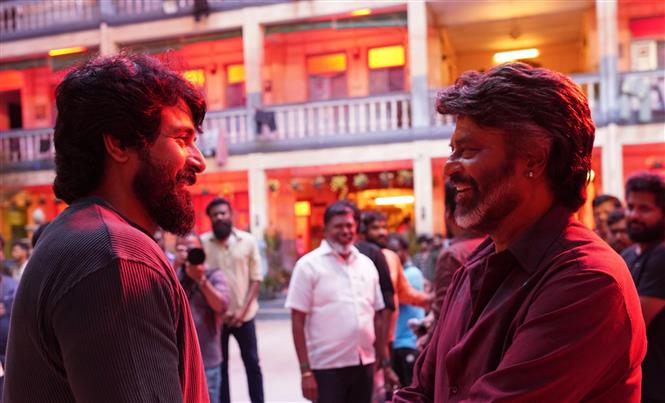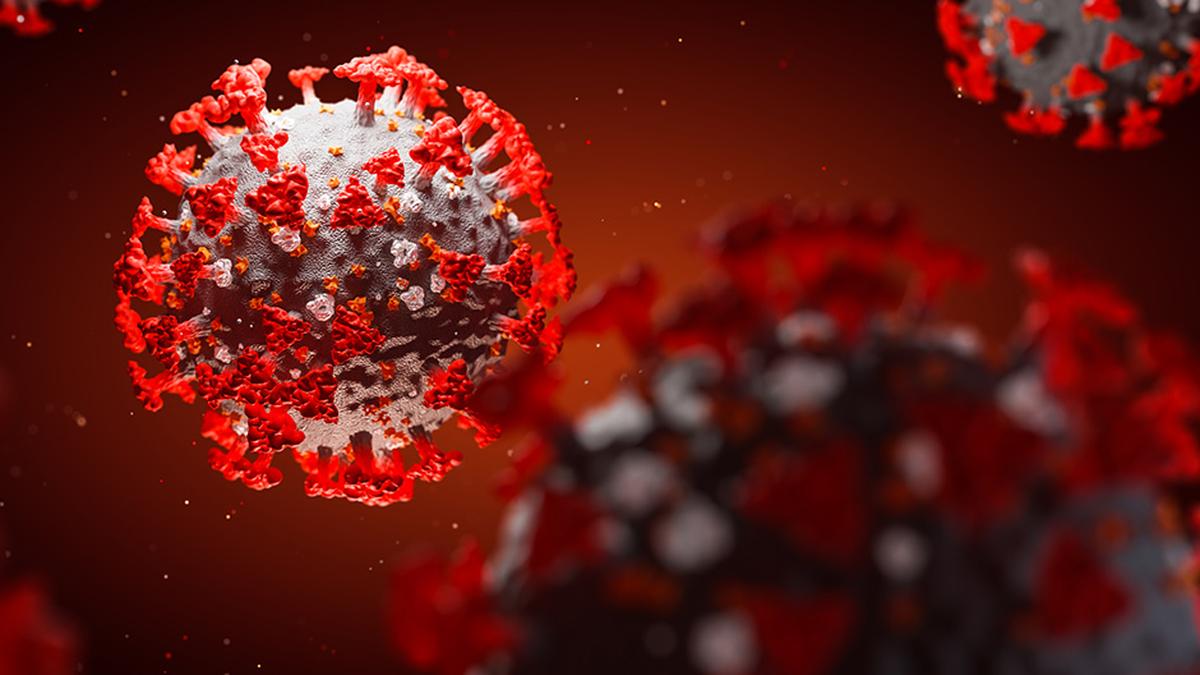Childhood cancer registry’s first report released, 241 cases identified in 2022

Childhood cancer registry’s first report released, 241 cases identified in 2022
The Chennai Population-Based Childhood Cancer Registry (PBCCR) has found that the median time from the onset of symptoms to cancer diagnosis was 12.5 days, and the median time from diagnosis to the start of treatment was two days, indicating a rapid diagnosis and early treatment.
The Chennai PBCCR, the country’s first dedicated childhood cancer registry, registered 241 paediatric cancer cases (139 boys and 102 girls aged up to 19) in the Greater Chennai Corporation in 2022.
Of them, 170 cases were captured by the PBCCR for high-resolution data — detailed abstraction was done with specific insights into diagnostic pathways, treatment timelines, disease-specific staging and follow-up data — and the remaining were routine data from the Tamil Nadu Cancer Registry Report.
The Cancer Institute (WIA), Adyar, published the first high-resolution data report from the PBCCR on Friday. Venkatraman Radhakrishnan, professor and head, Medical Oncology, Cancer Institute, said its findings were a testament to the excellent healthcare in Tamil Nadu, with half of the patients on the registry on treatment in the government sector, survival rate reaching 75% and treatment starting early.
R. Swaminathan, professor and head, department of epidemiology, biostatistics and cancer registry and associate director, Cancer Institute, said, “Of the 96,000 new patients diagnosed with cancer in Tamil Nadu in a year, 2,500 are children. Though we know this already, specific details of paediatric cancers are not known. It is for this reason that we, along with medical college hospitals and private hospitals that treat childhood cancers, created a dedicated childhood cancer registry.” This would help in improving paediatric cancer care services in the future, he said.
Leukemia, lymphoma, and soft tissue sarcoma were the most common malignancies in boys and girls. Among the 72 lymphoma and solid tumours analysed in the high-resolution data, 63 (88%) presented with localised disease, two (3%) had loco-regional disease, and only seven (9%) had advanced disease, it said.
One of the key findings was that the median time from symptom onset to diagnosis was 12.5 days, while the median time from diagnosis to the start of treatment was two days. Among the high-resolution cases, 81.2% received curative treatment, with chemotherapy being the most common modality.
As for survival rates, the report said that at the two-year follow-up, 71% of cases with high-resolution data were alive, with 81% in remission. This reflected significant progress in childhood cancer care in the region, it said. At the two-year follow-up for all cases, 143 out of 241 children (59.3%) were alive, 40 were deceased, and the status was unknown for 58 children. Among Indian population-based registries, Chennai’s age-standardised paediatric cancer incidence rate — 136.3 per million — ranks among the highest in the country; it had the second-highest age-standardised rate (ASR) for boys after Delhi, and ranked third for girls behind Thiruvananthapuram and Delhi.
This, according to a press release, highlighted the robust registration process rather than an increase in disease burden. A total of 17 hospitals contributed data to the Chennai PBCCR. The Institute of Child Health and Hospital for Children, Egmore, had the highest contribution, accounting for 104 of the 241 cases in 2022. Health Minister Ma. Subramanian released the report and inaugurated the Tamil Nadu Population-Based Childhood Cancer Registry and INPHOG Hospital-Based Childhood Cancer Registry.
Health Secretary Supriya Sahu said a population-based childhood cancer registry played a crucial role in guiding the framework for setting up an effective surveillance and monitoring mechanism in the public health sector.
E. Hemanth Raj, executive vice-chairman, Cancer Institute; Ramandeep Arora, director, Indian Paediatric Haematology Oncology Group; Nickhill Bhakta, associate member, St. Jude Children’s Research Hospital, U.S.; Eva Steliarova-Foucher, International Agency for Research on Cancer; and Balaji T.K., assistant professor, medical oncology, Cancer Institute, spoke.










